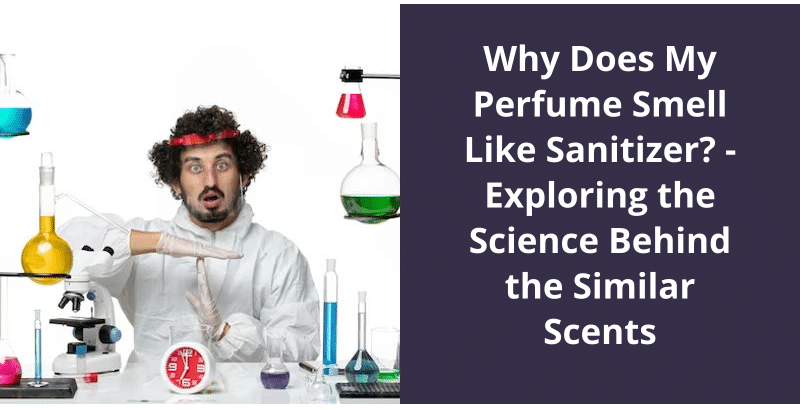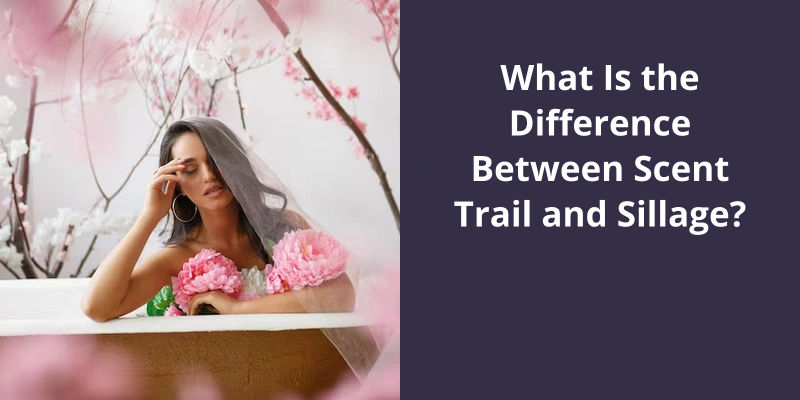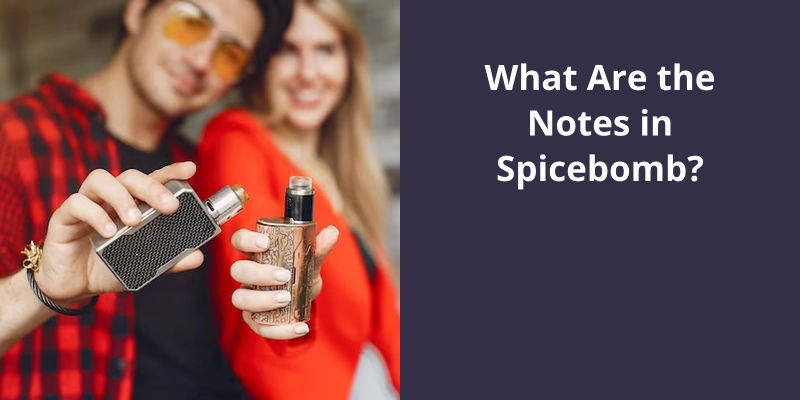Your perfume might smell like sanitizer due to the presence of alcohol. Most perfumes use ethanol, which is also found in many sanitizers, serving as a solvent that helps to distribute and evaporate the fragrance on your skin. As a result, both your perfume and hand sanitizer’s organic solvents dissolve the aromatic compounds and deliver the perfume or the antiseptic to the surface. Hence, when you first apply the perfume, you get a strong alcohol scent, similar to hand sanitizer. However, as the alcohol evaporates, the original perfume scent begins to come through.

Why Does My Perfume Not Smell Good Anymore?
Perfume is an essential part of many peoples daily routines, but over time, you may notice that your favorite fragrance doesn’t smell as good as it used to. It can be frustrating to spend money on a product that doesn’t deliver the desired results, but there are several reasons why your perfume may not smell good anymore. The first reason could be due to improper storage.
If youre not storing your fragrance properly, it can cause the ingredients to break down and lose their potency. Perfume should be stored in a cool, dark place away from direct sunlight and heat, as these elements can cause the fragrance to spoil. Exposure to air can also affect the scent of your perfume, so make sure the bottle is tightly closed when not in use.
This process is normal, and it can result in a milder, less potent scent. However, if the change in scent is drastic, it may be time to replace your perfume.
If you notice that your perfume has changed color or texture, it’s a sign that it’s aged and lost some of it’s integrity. Natural ingredients will develop and often get stronger with time, but theres a fine line between a robust scent and something that just smells wrong. It’s important to use your best judgment in these situations.
In addition to storage and aging, another factor that can affect the scent of your perfume is your body chemistry. Everyones skin reacts differently to fragrance, and certain scents may smell different or fade more quickly depending on your body chemistry.
Finally, it’s important to note that perfume can be impacted by external factors such as environmental pollution, stress, and illness. In this case, it may be best to take a break from wearing perfume until these factors have subsided.
By taking care of your fragrance and using your best judgment, you can ensure that your perfume continues to deliver the desired scent and quality over time.
Tips to Make Your Perfume Last Longer Throughout the Day.
- Apply perfume right after showering or bathing
- Target pulse points (wrists, neck, behind ears, inside elbows, behind knees)
- Layer scents by using matching lotions or body washes
- Avoid rubbing wrists together after spraying perfume
- Store perfume in a cool, dry place away from sunlight
- Apply unscented moisturizer before perfume for longer wear time
- Use a fragrance-free soap to avoid clashing scents
- Reapply throughout the day as needed rather than using too much at once
- Avoid spraying perfume onto clothing as it can stain or overpower the scent
While many of us associate perfume with it’s pleasant scent, it may come as a surprise that it’s also an effective disinfectant. This is due to the high alcohol content in most perfumes, which makes it capable of killing viruses, bacteria, and fungi. However, before reaching for your favorite fragrance, it’s essential to note that not all perfumes may be suitable for disinfecting purposes.
Can I Disinfect With Perfume?
The use of perfume as a disinfectant isn’t a new concept. In fact, many cultures have been using perfume to disinfect their homes and surroundings for centuries. The main reason behind this is that perfume contains alcohol, which is one of the most effective disinfectants available. Alcohol has the ability to kill many types of viruses, bacteria, and fungi, which is why it’s commonly used in hand sanitizers.
However, not all perfumes are created equal. Some perfumes may have a lower concentration of alcohol, which may not be effective in killing germs. This is why it’s important to read the label and check the alcohol content before using perfume for disinfection purposes.
While perfume may be effective in killing germs on surfaces, it doesn’t remove dirt and grime, which can also harbor germs.
In addition, perfume should be used sparingly and in well-ventilated areas. Inhaling large amounts of perfume can be harmful and can cause respiratory issues. It’s also important to keep perfume away from open flames, as it’s highly flammable.
With proper use, perfume can be a useful tool in keeping your home and surroundings clean and germ-free.
The Differences Between Perfume and Other Disinfectants (e.g. Bleach, Rubbing Alcohol)
- Perfume is used primarily for fragrance, while disinfectants such as bleach and rubbing alcohol are used to kill germs and bacteria.
- Perfume is typically applied to the skin or clothing, while disinfectants are used to clean surfaces such as countertops and floors.
- Perfume isn’t meant to be ingested, while some disinfectants may be toxic if ingested.
- Perfume comes in a variety of scents and strengths, while disinfectants typically have a strong, chemical smell.
- Perfume is used for aesthetic purposes, while disinfectants are used for cleanliness and hygiene.
- Perfume doesn’t have any proven germ-fighting properties, while disinfectants are specifically designed to kill germs and bacteria.
- Perfume is often more expensive than disinfectants due to it’s use of quality ingredients and unique scents.
Now that we understand why fragrance chemicals are added to perfume and other products, the question arises: why do we sometimes smell chemicals in perfume and find the scent overpowering or unpleasant? This issue has become a concern for many consumers who’re mindful of the potential health risks associated with synthetic fragrances. Let’s explore some possible answers to this question.
Why Do I Smell Chemicals in Perfume?
However, the use of fragrance in products has been a cause for concern in recent years. Fragrance chemicals have been linked to various health effects, including allergic reactions, skin irritation, and respiratory problems. Some chemicals in perfumes have also been classified as potential endocrine disruptors, which can interfere with hormonal function in the body.
One reason why we may smell chemicals in perfume is the use of synthetic fragrances. Synthetic fragrances are created in a lab using a variety of chemicals and are often cheaper to produce than natural fragrances. However, they can also be more potent and have a stronger scent than natural fragrances.
Preservatives are added to perfumes to prevent the growth of bacteria, mold, and other microorganisms that can degrade the quality of the fragrance. However, some preservatives, such as parabens and formaldehyde, have been linked to health concerns and are often avoided in natural and organic perfumes.
Additionally, the way perfume is applied can also affect the scent and the amount of chemicals that are released into the air. Spraying perfume directly onto the skin or clothing can cause it to evaporate more quickly and release more chemicals into the air. This can lead to a stronger scent and potentially more exposure to fragrance chemicals.
For example, plastic bottles or containers can absorb some of the fragrance, altering the scent over time. Glass bottles with tight-fitting lids can help preserve the scent and reduce the amount of chemicals released into the air.
Choosing natural and organic perfumes, using fragrance-free products, or reducing the amount of fragrance products used can help reduce exposure to potentially harmful chemicals.
The Impact of Fragrance on the Environment and Wildlife.
- Fragrances can contain synthetic chemicals that can be harmful to the environment and wildlife.
- When these synthetic chemicals are released into the environment, they can harm plants, animals, and other living organisms.
- Fragrance chemicals can also contribute to air pollution and water pollution.
- Some fragrances may contain ingredients that are animal-derived, such as musk or civet, which can contribute to animal cruelty.
- Consumers can make more environmentally-friendly choices by choosing natural fragrances or fragrance-free products.
- Manufacturers can also make efforts to reduce their environmental impact by using sustainable ingredients and packaging.
It’s important to be aware of the potential risks associated with using perfume, especially if you suddenly find yourself experiencing allergic reactions. While there are many possible culprits behind your new sensitivity, a likely explanation is that your fragrance contains ingredients that your body is simply intolerant to. Let’s take a closer look at why people can be allergic to perfume and what you can do to stay safe.
Why Am I Suddenly Allergic to My Perfume?
Allergic reactions happen when your bodys immune system thinks that a substance is harmful and overreacts, producing antibodies that can cause inflammation, redness, itching, and other symptoms. In the case of perfume allergies, these symptoms typically appear on the skin, but they can also affect the respiratory system and cause difficulty breathing, coughing, and wheezing.
Perfume allergies can develop suddenly, even if you’ve used the same product for years without any problems. This can be due to changes in the formula of the perfume, changes in your own body chemistry, or exposure to other allergens that sensitize your skin and make it more reactive. In some cases, perfume allergies can also be triggered by stress, hormonal changes, or certain medications.
To avoid getting allergic reactions from perfume, it’s important to choose fragrances that are made with natural or hypoallergenic ingredients, as well as to apply them sparingly and in well-ventilated areas. If you’re already experiencing symptoms of a perfume allergy, you should stop using the product immediately and, if necessary, seek medical advice. Your doctor may recommend steroid creams, antihistamines, or other treatments to relieve the symptoms and prevent future allergic reactions.
Remember, perfume allergies aren’t uncommon, and there’s nothing wrong with being sensitive to certain fragrances. You can still enjoy scent in your life by exploring different options, such as fragrance-free products or essential oils, and by being mindful of the ingredients in the products you use. By taking the time to understand your own body and it’s reactions, you can make choices that support your health and well-being, without sacrificing your personal style or preferences.
As we all know, how someone perceives a scent can differ greatly from person to person. This is especially true when it comes to perfume. Even with the same fragrance, it’s not uncommon for one person to love it while another thinks it smells strange. But have you ever wondered why this is? It turns out there are a variety of factors that come into play.
Why Does Perfume Smell Weird to Me?
Additionally, some people may simply have a different sense of smell than others. This can be due to genetic factors, environmental factors, or even training. If you grew up in an environment that exposed you to a lot of strong smells, for example, you may be less sensitive to perfume than someone who grew up in a more odorless environment.
Another possible reason why perfume smells weird to you is that you may have an allergy or sensitivity to certain fragrance ingredients. This can cause your skin to become irritated or inflamed when you come into contact with certain perfumes. Common culprits include linalool, limonene, and citral, which are all found in many popular perfumes.
Many people make the mistake of applying too much perfume or spraying it too close to the skin, which can result in an overpowering or unpleasant scent. To avoid this, try spraying your perfume from a distance and using a lighter touch.
By experimenting with different scents and application techniques, you may be able to find a perfume that works better for you and smells more pleasant on your skin. As with all things related to scent, it’s a highly personal and subjective experience that can vary greatly from person to person.
How to Choose the Right Perfume for You: Tips and Tricks
Choosing the perfect perfume can be a daunting task, but there are a few tips and tricks that can help simplify the process. Start by identifying your preferred scent profile, such as floral, woody, or musky. Consider the occasion and time of day you’ll be wearing the perfume, as well as your personal style and mood. Try out different scents by sampling them in-store or ordering samples online. Finally, take enough time to evaluate the fragrance on yourself before making a purchase to ensure it complements your body chemistry and lasts throughout the day.
Now that we understand why some perfumes can smell like ethanol, let’s explore the potential consequences of using expired or synthetic fragrances.
Why Does My Perfume Smell Like Ethanol?
One of the main reasons why your perfume may smell like ethanol is because alcohol is an essential ingredient in fragrances. It’s often used as a carrier for the other scent notes, allowing them to be easily dispersed and absorbed when sprayed onto the skin. However, this alcohol content is usually diluted with water and other ingredients to create a more balanced scent profile. If your perfume smells too much like alcohol, it could be due to an imbalance in the formula, or because the alcohol content is too high.
Some fragrances are designed to mimic the scent of natural materials, such as flowers or fruits, but are made using chemical compounds. Additionally, if youve been using the same fragrance for a long time, your olfactory system may have become desensitized to these synthetic compounds, making them more noticeable and giving the impression of an alcohol-like smell.
Age can also play a role in the aroma of your perfume. Over time, the alcohol content in fragrances can become more pronounced, resulting in a scent that smells overly alcoholic. Fragrances can also develop a “burnt” or “off” smell when they reach their expiration date, which can make them seem more alcoholic.
Lower-quality alcohols may have a harsher, more alcoholic smell than higher-quality alternatives. These types of alcohols can also be more prone to oxidation and spoilage, further contributing to an overly alcoholic scent.
In some cases, an alcoholic scent in a fragrance can be a deliberate choice by the perfumer. Certain fragrances may contain “boozy” notes, which can give the impression of alcohol without actually using it as an ingredient. These notes can include whiskey, rum, or cognac, and are meant to add depth and complexity to the scent profile.
How to Choose a Fragrance With Balanced Alcohol Content
Choosing a fragrance with balanced alcohol content can be a bit tricky. It’s recommended to look for fragrances with a moderate alcohol content as it can prevent irritation to the skin and ensure that the scent lasts longer. Checking the label can also help in determining the alcohol content of the fragrance.
Conclusion
In conclusion, the world of fragrances can be complex and nuanced, but understanding the basics of how they’re made and what ingredients they contain can provide valuable insight when it comes to unexpected scent experiences. Whether it's a fragrance that smells like sanitizer or simply one that doesn't quite match your expectations, delving deeper into the chemical makeup and expiration dates of your scents can help you make informed decisions about your olfactory experiences and ensure that you always smell your best. So next time you notice a scent that's not quite right, don't dismiss it—there may be a fascinating story behind that unexpected aroma just waiting to be discovered.





